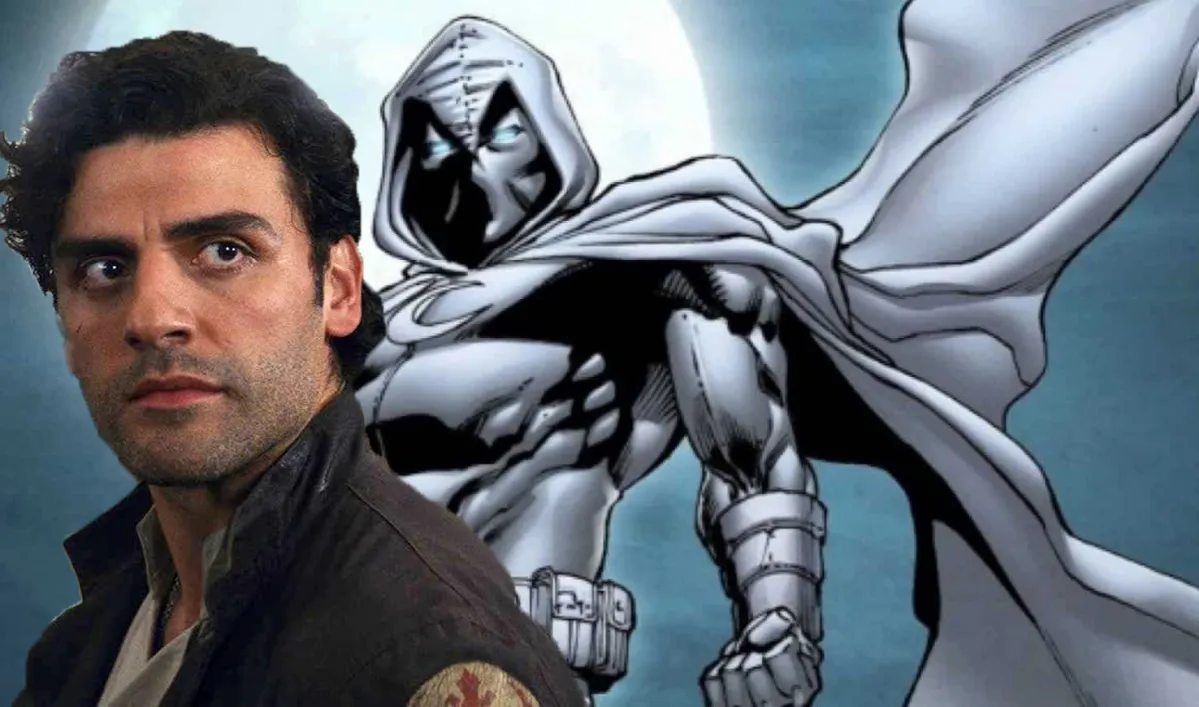A new featurette promoting Moon Knight, Marvel’s latest Disney+ series premiering on March 30, has dropped! The featurette was released on Twitter on March 10 and features interviews with the actors, along with some new footage. It also addresses a core element of Moon Knight’s (Oscar Isaac) character: his mental health struggles and Dissociative Identity Disorder (DID).
The original Moon Knight comics series tells the story of Marc Spector, a former mercenary and CIA agent who gains superpowers when he dies and is brought back to life by the Egyptian god Khonshu. According to Marvel, the new Disney+ series “follows Steven Grant, a mild-mannered gift-shop employee, who becomes plagued with blackouts and memories of another life. Steven discovers he has dissociative identity disorder and shares a body with mercenary Marc Spector.” In the comics, Steven and Marc are two of five alters who make up a system (in DID terminology, alters in a system refer to different people living within one body) and work together to fight crime.
Oscar Isaac is, of course, one of the actors interviewed in the featurette, and he says that “our job [when creating the series] was to put a lens on the things that had the most dramatic juice, and ultimately take the mental health aspect incredibly seriously.”
The fact that Isaac and the show’s creators are facing Moon Knight’s mental health head-on is heartening to hear, because a plot that hinges on mental health struggles can so easily tip into harmful stereotypes. And as we’ve seen in the past, Marvel has a good but imperfect track record when dealing with mental health.
Marvel and Mental Health

In Iron Man 3, which takes place after the attack on New York in The Avengers, Tony Stark experiences recurring panic attacks: sudden, frightening episodes in which he feels anxiety so intense that he has trouble functioning. It’s generally accepted among fans that Tony is experiencing symptoms of PTSD, caused by his trip through the wormhole to divert the nuclear bomb from New York City. In Iron Man 3, Tony’s PTSD is portrayed as a very real and emotionally compelling struggle, and it’s integrated into his character in a very believable way.
On the other hand, in The Avengers: Endgame, Thor’s mental health struggles are treated like a joke. After losing his family, his home, and half his people, Thor falls into a profound depression and withdraws from most of his friends. He finds himself unable to summon the energy to perform his duties as king, and finds that the only coping mechanisms that numb the pain are alcohol and video games. It’s well known that depression causes the exact problems with executive functioning and anxiety that Thor struggles with throughout the movie, but the narrative never extends him any compassion or kindness the way Iron Man 3 does with Tony. Instead, everyone around him rolls their eyes at Thor, tells him to snap out of it, and makes fun of his weight. As fantastic as Endgame is in many ways, the movie is a missed opportunity for a real exploration of the trauma and emotional pain that Thor’s experiences would cause, even if he is a 1,500-year-old god.
What these two movies show is that Marvel does have the capacity to explore mental health matters in a way that’s realistic and sensitive to viewers who may share a character’s struggles. However, as we see with Thor’s depression, Marvel does sometimes miss the mark.
Dissociation Isn’t Just a Plot Device
Portraying Marc and Steven’s DID in Moon Knight in a realistic and sensitive way will be crucial, since DID is a real condition that’s all too often treated as an easy plot device or the butt of a joke.
Dissociation, in general, occurs when an experience is so violent or traumatic that the psyche blocks the experience out as a form of self-preservation. Dissociation is much more common than you’d think. If you’ve ever responded to a situation that felt unbearable, like bullying or abuse, by zoning out or retreating into what felt like a rich and vivid fantasy, then you may have experienced dissociation yourself.
Dissociative Identity Disorder is thought by medical professionals to be a particular form of dissociation, in which the psyche responds to trauma by pluralizing into multiple alters. It’s important to note, though, that many with DID don’t consider themselves ill or in need of fixing. Instead, they see the experience of being plural as a natural type of neurodivergence.
In fact, March 5 was DID Awareness Day, and many people took to social media to share their experiences, positive and negative, of living with DID and being plural.
Hopefully, during production, everyone who worked on Moon Knight kept in mind that real people with DID and related psychological experiences will be watching the show.
What Does “Incredibly Seriously” Mean?

Of course, committing to taking a mental health matter seriously doesn’t guarantee that the show overall will do a good job portraying it. When Oscar Isaac says they’re taking it “incredibly seriously,” that could mean that Steven and Marc’s mental health journey is a major focus of the character study that Moon Knight promises to be, instead of just a jumping-off point for action sequences and spooky magic. Taking it seriously isn’t synonymous with getting it right, though, and there are still plenty of ways that Moon Knight could mess it up.
Another possibility—one we hope for—is that the show’s creators took the time to consult with people who are living with DID. Taking this step would help make sure that Marc and Steven’s experiences are realistic. It would also push the show to portray DID in a way that could actually help the DID community—or, at the very least, avoid causing harm.
It’s encouraging that Marvel is addressing the mental health angle right off the bat. Hell, it’s encouraging that Isaac is even framing it as a “mental health aspect” in the first place, instead of using ableist language. Hopefully Moon Knight will take on DID in a way that’s sensitive, compassionate, and helpful.
Moon Knight will stream on Disney+ starting on March 30.
(featured image: Marvel Studios)
Want more stories like this? Become a subscriber and support the site!
—The Mary Sue has a strict comment policy that forbids, but is not limited to, personal insults toward anyone, hate speech, and trolling.—










Published: Mar 17, 2022 12:24 pm